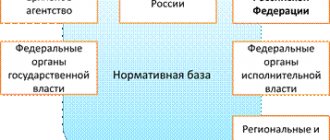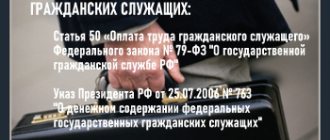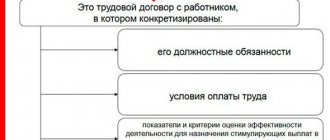The most well-known ban for persons with access to various state-level secret information is the ban on leaving the country. Almost every citizen of the Russian Federation has an acquaintance who is not allowed to travel abroad, working in a closed enterprise or in a government agency.
FSB employees, employees of sensitive enterprises and many other persons are prohibited from traveling abroad. Few people know that not every person admitted to state secrets is absolutely prohibited from traveling abroad.
There are three forms of access to state secrets. Each form makes it possible to obtain certain data of varying degrees of secrecy.
In addition to the inability to fly on vacation to hot countries, such employees are subject to other restrictions and prohibitions. Some of them may be temporary, others are permanent.
The concept of state secret means information about the activities of the Russian Federation in various fields: economic, military, operational and investigative. The transfer of certain secret data may damage the level of security of the Russian Federation. That is why the safety of secret information is monitored especially strictly.
Stage 1 Submission of documents
In accordance with Part 2 of Art. 65 of the Labor Code of the Russian Federation, in some cases, taking into account the specifics of the work of the Labor Code of the Russian Federation, other federal laws, decrees of the President of the Russian Federation and decrees of the Government of the Russian Federation may provide for the need to present additional documents when concluding an employment contract. The Law on State Secrets does not provide a list of documents required for obtaining access.
According to paragraph 28 of the instructions, an applicant for access to state secrets is required to submit:
1. Personally completed application form (Appendix 1). The questionnaire must be signed by an employee of the personnel department and certified by the seal of the organization or personnel department.
The information provided in the form includes:
a) information about the applicant for admission;
b) information about close relatives;
c) a note on familiarization with the legislation on state secrets, consent to verification activities.
What information about close relatives is indicated in the application form?
In the Instructions, close relatives are understood as wife/husband, children, adoptive parents, adopted, full and half (having a common father or mother) brothers and sisters. If close relatives change their last name, first name or patronymic, the application form also indicates the previous last name, first name or patronymic. The questionnaire contains information about the residence of close relatives abroad and the periods of such residence. In paragraph 3 of the questionnaire, a question is asked about the criminal record of close relatives, indicating the time and basis of the criminal record, although the presence of a criminal record among close relatives is not a basis for refusal of admission.
The application form indicates that the applicant is familiar with the legislation on state secrets and responsibility for its violation. The applicant is also informed of the negative legal consequences for providing knowingly false data in the application form.
Restrictions for applicants
A person will be refused in the following cases:
- recognition by the court as incompetent or partially capable;
- the presence of criminal proceedings against him (crime against state power or intentional) and the status of the accused;
- existing outstanding or unexpunged convictions for these crimes;
- criminal prosecution terminated on non-rehabilitative grounds, if the termination period has not expired, which is similar to the statute of limitations for bringing to criminal responsibility for such acts;
- the presence of medical contraindications according to the list determined by Order of the Ministry of Health of the Russian Federation dated August 26, 2011 No. 989n;
- residence on a permanent basis outside the state of both the applicant himself and his relatives or their execution of papers for travel for permanent residence in other countries;
- detection upon inspection of such actions of a person that pose a threat to the state;
- the person’s evasion from verification activities or the presence of false information in the information provided in the questionnaire.
By the way
| The list of medical contraindications for working with the use of information constituting a state secret was approved by Order of the Ministry of Health and Social Development of Russia dated August 26, 2011 No. 989n. Medical contraindications for access to state secrets are differentiated into three groups. Group 1. Mental disorders and behavioral disorders:
Group 2. Mental and behavioral disorders associated with the use of psychoactive substances. Group 3. Diseases of the nervous system (epilepsy). |
The questionnaire is signed by the applicant and an employee of the personnel department and certified by the seal of the organization or personnel department.
2. Documents required for obtaining admission:
- Documents identifying the applicant and confirming the information specified in the application form (passport, military ID, work record book, birth certificate, marriage certificate (divorce), education diploma, etc.);
- A certificate confirming the absence of medical contraindications for working with the use of information constituting a state secret.
What are the rules for issuing a certificate of no medical contraindications?
To obtain a certificate, the applicant must contact a medical organization that has the appropriate license. The examination is carried out by a psychiatrist, a narcologist and a neurologist. The medical report is approved by the medical commission of the medical organization and certified by the seal of the organization. A certificate in the approved form (Appendix 2) is issued to the applicant only in the absence of medical contraindications. The certificate is valid for 1 year from the date of issue.
Point 12 of the questionnaire, which is filled out by a citizen applying for access to state secrets, contains a question about the criminal record of the citizen filling out the questionnaire and his close relatives. Should the presence or absence of a criminal record in this situation be confirmed by an appropriate certificate?
As a general rule, the presence or absence of a criminal record of a citizen is confirmed by a corresponding certificate of the presence (absence) of a criminal record and (or) the fact of criminal prosecution or the termination of criminal prosecution. However, the Law on State Secrets or the Instructions do not directly mention the submission of the relevant certificate.
According to Part 1 of Art. 65 of the Labor Code of the Russian Federation, a certificate of the presence (absence) of a criminal record is presented if an employee enters a job related to an activity to which, in accordance with the Labor Code of the Russian Federation or other federal law, persons who have or have had a criminal record, have been or are subject to criminal prosecution are not allowed . The corresponding norm is contained in Art. 22 of the Law on State Secrets: the basis for refusal of access is the presence of an unexpunged conviction for state and other serious crimes. This means that when applying for a job related to access to state secrets, the candidate must confirm the absence of a criminal record for serious crimes by presenting the appropriate certificate issued in accordance with the order of the Ministry of Internal Affairs of Russia dated November 7, 2011 No. 1121 “On approval of the Administrative Regulations of the Ministry of Internal Affairs of the Russian Federation for the provision of state service for issuing certificates of the presence (absence) of a criminal record and (or) the fact of criminal prosecution or the termination of criminal prosecution.”
Please note: in this case we are talking about a criminal record for certain types of crimes (serious), which was not expunged (cases of expungement and expungement of a criminal record are defined in Article 86 of the Criminal Code of the Russian Federation).
According to paragraph 34 of the instructions, security authorities may request from organizations additional documents necessary to carry out inspection activities.
Eligibility restrictions for candidates
A candidate will be denied access to GT if he:
- a repeat offender, deprived or limited in legal capacity, which has been recognized by the court, he is being tried or is under investigation for crimes against the state plus other serious crimes, he has been tried for such acts and his criminal record has not been expunged;
- was subject to criminal prosecution, but the prosecution was terminated on non-exonerating grounds;
- from the date of termination of such a criminal case (criminal prosecution), a period equal to the statute of limitations for bringing to criminal responsibility for committing these crimes has not expired;
- has medical contraindications from the list established by Order of the Ministry of Health and Social Development of the Russian Federation dated August 26, 2011 No. 989n;
- permanently resides abroad and/or draws up documents to live there permanently, this restriction also applies to his close relatives - parents, children, spouses, brothers, sisters (full - both parents are common and half - only one parent is common), adoptive parents, adopted;
- during verification activities, he threatened the security of the Russian Federation with his actions;
- evaded verification activities and/or provided deliberately false information in the questionnaire.
Stage 2 Familiarization with the legislation on state secrets
The Law on State Secrets and the instructions do not specify the moment when a citizen becomes familiar with the legislation on state secrets, with his obligations and responsibilities in this area. Only the document where such familiarization is recorded is defined - clause 19 of the questionnaire.
Obviously, familiarization must be made when submitting documents for access to state secrets and filling out an application form. The purpose of the familiarization is to make an informed decision by the employee (job applicant) about the possibility of performing duties related to access to state secrets.
Ban on leaving the country
Having access to state secrets in itself cannot be a reason for a ban on traveling abroad. Admission raises a number of nuances related to crossing checkpoints and obtaining a foreign passport.
A passport for traveling abroad is issued strictly under the control of a special department. The official must inform management about the upcoming trip in advance and obtain permission to travel, which may not be given.
An employee who does not work with classified documentation has, in fact, no restrictions. However, the issue of traveling abroad should in any case be resolved with management. Forms 1 and 2 of admission require a mandatory indication of belonging to a state secret in the application form for a foreign passport. In this case, the document is processed much longer.
A citizen can appeal the decision of an employer who prohibited an employee from traveling abroad. But a court or a higher authority is more likely to take the side of the state, and this should not be forgotten.
According to the standard contract, the official cannot leave the country for 5 years. You can be banned from traveling abroad for 10 years. This period is established for persons familiar with particularly secret documents.
Stage 4 Conducting verification activities regarding the applicant
Verification activities are carried out by security authorities at the location of organizations and their territorially separate divisions. The possibility of conducting verification activities also depends on the form of access to information constituting a state secret.
In what cases are verification activities carried out without fail?
The legislation of the Russian Federation provides for three forms of access to state secrets, corresponding to the degrees of secrecy of information:
- The first form is for citizens who have access to information of special importance;
- The second form is for citizens who have access to top secret information;
- The third form is for citizens who have access to classified information.
When obtaining admission of the first and second forms, verification activities by security authorities are mandatory. To obtain admission under the third form, verification activities are not carried out except in cases where there are doubts about the reliability of their personal data.
Carrying out verification activities when obtaining a security clearance is mandatory for heads of organizations, employees of structural units for the protection of state secrets, as well as persons who are entrusted with performing the functions of such structural units, regardless of the form of clearance.
Thus, verification activities when obtaining access to state secrets must be carried out in relation to:
- Citizens allowed access to top secret information and information of special importance;
- Heads of organizations;
- Employees of structural units for the protection of state secrets;
- Persons entrusted with performing the functions of structural units for the protection of state secrets.
Levels and vultures
From the above we can conclude that in the Russian Federation there are three classifications of secrecy for information constituting a state secret:
- “Of special importance.”
- "Top secret".
- “Secret.”
As for the times of the USSR, during that historical period the levels of secrecy of state documents were slightly higher:
- "Top secret. Information in a special folder.”
- “Special folder.”
- “Of special importance.”
- "Top secret".
- “Secret.”
- “Data is for official use only.”
By the way
| When access to state secrets may be denied A citizen may be denied access to state secrets on the following grounds. Grounds 1. The court has recognized him as incompetent, partially capable or a repeat offender, he is on trial or under investigation for state and other serious crimes, and he has an outstanding criminal record for these crimes. Recognition of a citizen by a court as incompetent or with limited legal capacity is carried out in cases and in the manner provided for by civil legislation and Chapter. 31 Code of Civil Procedure of the Russian Federation. In the previously effective Criminal Code of the RSFSR, state crimes were highlighted; today they are placed in section. X Criminal Code of the Russian Federation “Crimes against state power”. Article 15 of the Criminal Code of the Russian Federation recognizes as serious crimes intentional acts for which the maximum punishment does not exceed ten years of imprisonment and, taking into account the definition of crimes of average gravity, not less than five years of imprisonment. To make a decision on refusing access to state secrets, it is the very fact of being on trial or under investigation for the designated types of crimes that is important, and not the presence of proof of guilt and a guilty verdict by the court. According to Art. 86 of the Criminal Code of the Russian Federation, a person convicted of committing a crime is considered to have a criminal record from the day the court’s conviction enters into legal force until the criminal record is expunged or removed. In accordance with Art. 400 of the Code of Criminal Procedure of the Russian Federation, a criminal record is removed by the court on the basis of a petition from a person who has served his sentence before the expiration of the criminal record. Ground 2. The presence of medical contraindications for working with the use of information constituting state secrets, according to the list approved by the federal executive body authorized in the field of healthcare and social development. Ground 3. Permanent residence of himself and (or) his close relatives abroad and (or) execution by these persons of documents for departure for permanent residence in other states. According to the Instructions, permanent residence abroad means residence of citizens outside the Russian Federation for more than six months during the year, not related to the performance of their public service duties. Ground 4. Identification, as a result of verification activities, of actions of the registered person that create a threat to the security of the Russian Federation. The State Secrets Law does not define actions that pose a threat to the security of Russia. For comparison, in accordance with Federal Law No. 115-FZ of July 25, 2002 “On the Legal Status of Foreign Citizens in the Russian Federation,” actions that create a security threat include a violent change in the foundations of the constitutional system of the Russian Federation. The issue of a security threat created by the actions of the person being processed is decided in each case by the security authorities. Ground 5. Evasion of the person being registered from verification activities and (or) provision of knowingly false personal data to him. The decision to deny an official or citizen access to state secrets is made by the head of a government body, enterprise, institution or organization on an individual basis, taking into account the results of verification activities. A citizen has the right to appeal this decision to a higher organization or to court. Neither the Law on State Secrets nor the Instructions indicate the form of the decision to refuse access. We believe that a refusal of access to state secrets, entailing a refusal to conclude an employment contract at the request of the person who was denied access, must be formalized in writing, indicating the reasons for the refusal, by analogy with Art. 64 Labor Code of the Russian Federation. The same is evidenced by judicial practice. ExampleThe Presidium of the Supreme Court of the Russian Federation considered, by way of supervision, a civil case based on T.’s complaint about the refusal of access to state secrets (Resolution of the Presidium of the Supreme Court of the Russian Federation dated February 23, 2000 No. 162pv-99). The court in its decision determined that the list of grounds for refusal of access to state secrets and an indication of the possibility of appealing such a refusal implies that the decision must set out the reasons for refusing a citizen or official access to state secrets. |
What information is classified as a state secret?
The authorized bodies decide what exactly constitutes a state secret. The list of the latter is contained in Presidential Decree No. 90 of February 11, 2006. In particular, these are the Ministry of Internal Affairs, the Ministry of Defense, the FSB, Roscosmos and so on.
Information is divided into types depending on the level of secrecy. There are three vultures:
- Special importance.
- Secret.
- Top secret.
The level is determined depending on the scale of harm that will be caused if the data is disclosed. Article 7 of Federal Law No. 5485-1 contains a list of data that cannot be considered a state secret:
- Emergency situations, disasters that may pose a threat to the life/health of the population.
- The state of agriculture, ecology and other socially important areas.
- Privileges and social guarantees that officials can enjoy.
- State of health of persons in high positions.
- Volume of gold reserves.
- Offenses of state institutions.
FOR YOUR INFORMATION! Maintaining state secrets is one of the job responsibilities. But this is the responsibility of not only the employee, but also the employer. The latter is responsible for providing access and controlling their use.
Stage 5: Obtaining access to state secrets
Employees of personnel departments are directly involved in the preparation of materials for obtaining access to state secrets. For this purpose, they are vested with the following powers:
- Familiarize the citizen applying for access to state secrets with the norms of the legislation of the Russian Federation on state secrets, which provide for liability for violation of such norms;
- Check the information provided by the citizen in the application form with the information contained in the submitted documents;
- If necessary, clarify certain information specified in the application form;
- Bring to the attention of the citizen applying for access to state secrets the obligations to the state to comply with the requirements of the legislation of the Russian Federation on state secrets.
Employees of personnel services must explain in detail to the citizen the norms of the current legislation related to the protection of state secrets, familiarize him with the rules providing for liability for the disclosure of state secrets. Particular attention should be paid to the fact that termination of access to state secrets does not entail the termination of obligations to protect state secrets. The restrictions associated with admission must also be explained.
Before putting your signature and stamp on the questionnaire, you should check its data with the documents of the person being checked.
The rest of the work related to access to state secrets is carried out by security-secret units, the presence of which is a condition for obtaining a license to carry out work with state secrets.
About declassification
Among the grounds for declassifying information that was previously a state secret is the assumption by the Russian Federation of obligations to exchange information. This could also be done due to a change in the current situation, due to which it makes no sense to continue to keep the information classified.
The period for classifying information cannot exceed 30 years. However, there are exceptional cases when an interdepartmental commission decides to extend the classification period.
Stage 6 Decision on access to state secrets
The decision on access to state secrets is made:
- Military Commissioner in relation to citizens who are in the reserve and subject to conscription for military service upon mobilization or military training;
- In relation to the heads of state bodies and state organizations - by those who appointed them to the relevant positions;
- The customer of work using information constituting a state secret in relation to the heads of non-governmental organizations.
Note! It is possible to conclude an employment contract for working with information constituting state secrets only after the citizen has received security clearance
A letter certified by the seal of the organization that issued access to state secrets is sent to the organization whose head has been granted access to state secrets, which indicates the end date of the verification activities, the form and number of access to state secrets, the name of the security agency that carried out the verification activities, and the date of acceptance decisions on access to state secrets.
For state civil servants, obtaining access to state secrets may be considered as a basis for exemption from going through the competition procedure. In this case, having access is an advantage for the employee.
Classification system
The above classification of information constituting a state secret is approved by the Law “On State Secrets”. It performs several functions at once:
- Setting the classification of classified data of national importance.
- The range of information that is/is not subject to such classification.
- Procedures for both classifying and declassifying information.
- Access of individuals to state secrets.
- Measures that are taken to protect this sensitive data.
The assignment of this or that information to a certain level of secrecy is regulated by Decree of the Government of the Russian Federation No. 870 (1995). Let's look at how information is classified here.
Grounds for termination of access
The grounds for termination of access are listed in Article 23 of Federal Law No. 5485-1:
- Staff reduction and other organizational measures, due to which the employee’s employment contract is terminated.
- There is a corresponding decision from the manager.
- Disclosure of state secrets by an employee or other violation of access obligations.
- The emergence of obstacles to access to state secrets. For example, an employee went abroad.
https://www.youtube.com/watch?v=ytpolicyandsafetyru
Termination of access to state secrets does not relieve the employee’s obligations regarding non-disclosure of information.
Stage 7 Registration of responsibilities related to admission
The decision on how to formalize the obligations to protect restricted information rests with the employer.
The legislation on state secrets regulates the formalization of obligations to ensure the secrecy of information as follows: in Art. 21 of the Law on State Secrets stipulates that the mutual obligations of the administration and the person being registered are reflected in the employment contract; the conclusion of an employment contract before the end of the inspection by the competent authorities is not allowed.
What conditions regarding work with information constituting state secrets should be enshrined in an employment contract?
First of all, the employment contract should indicate the obligation to ensure the secrecy of information.
In addition, based on Art. 23 of the Law on State Secrets, it is in the employment contract that it must be indicated that termination of an official’s or citizen’s access to state secrets is an additional basis for terminating the employment contract with him. The norms of the Labor Code of the Russian Federation do not require such clarification. However, when resolving such disputes, courts take into account the requirement of Art. 23 of the Law on State Secrets.
You should also pay attention to the content of the obligations to protect state secrets when applying for a part-time job for a position related to access to state secrets.
Part-time workers are subject to an additional obligation: a part-time employee does not have the right to use information constituting a state secret that he received at his main place of work. This obligation must be reflected in his employment contract.
Do regulations provide for the form of an employment contract for working with information constituting a state secret?
The previously valid Instruction contained a form of agreement on obtaining access to state secrets. In fact, such an agreement was concluded in addition to the employment contract.
The current Instructions do not provide for an approximate form of an agreement, but contain approximate obligations to comply with the requirements of the legislation of the Russian Federation on state secrets (Appendix 3).
1) With persons with whom an employment contract is concluded, the citizen’s obligations to the state are reflected in the employment contract;
2) With persons with whom an employment contract is not concluded, obligations to the state are formalized in the form of a receipt.
We believe that the formalization of responsibilities related to the protection of state secrets in labor relations is possible in two ways.
Method 1. An obligation is drawn up in Form 2 as an annex to the employment contract.
https://www.youtube.com/watch?v=ytpressru
Method 2. The employment contract includes a section devoted to the employee’s responsibilities related to access to state secrets. In accordance with Part 3 of Art. 57 of the Labor Code of the Russian Federation, an additional condition on non-disclosure of state secrets may be included in the employment contract.
In the next issues of the Personnel Officer's Handbook, we will talk about the specifics of remuneration for employees who have access to information constituting state secrets, as well as the consequences of terminating access to state secrets.
Annex 1
Form of the questionnaire completed when obtaining access to state secrets
Appendix 2
Form of certificate confirming the absence of medical contraindications for working with the use of information constituting a state secret
Appendix 3
Approximate obligation of a citizen to comply with the requirements of legislation on state secrets





